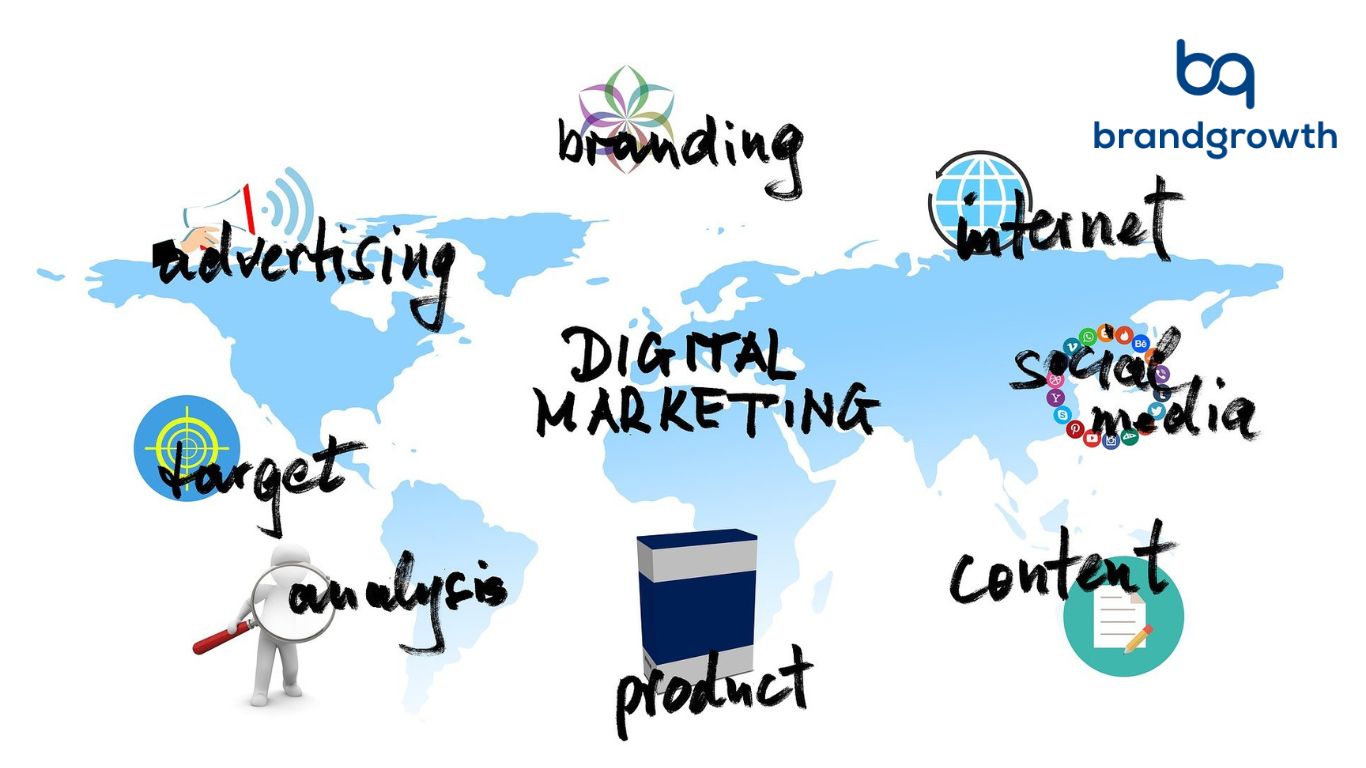
In the fast-evolving digital marketing world, adaptation is not just an option but a necessity. As we step into the future, the landscape of digital marketing is poised for remarkable transformation, driven by technological advancements, shifting consumer behaviors, and emerging trends. Here’s a glimpse into what lies ahead and how businesses can prepare to thrive in this dynamic environment.
1. Artificial Intelligence and Machine Learning
Artificial Intelligence (AI) and Machine Learning (ML) are already revolutionizing digital marketing practices. From personalized recommendations and predictive analytics to chatbots and virtual assistants, AI is enhancing customer interactions and optimizing marketing strategies. In the coming years, AI will continue to refine targeting precision, automate routine tasks, and deliver hyper-personalized experiences at scale.
2. Voice Search and Conversational AI
With the rise of smart speakers and virtual assistants like Siri, Alexa, and Google Assistant, voice search has become mainstream. Optimizing content for voice queries and leveraging conversational AI will be crucial. Marketers must adapt their SEO strategies to accommodate natural language queries and focus on providing concise, relevant answers that align with user intent.
3. Augmented Reality (AR) and Virtual Reality (VR)
AR and VR technologies are transforming how consumers interact with brands. From virtual try-on experiences in retail to immersive product demos and virtual showrooms, these technologies are enhancing engagement and driving conversions. Integrating AR/VR into marketing campaigns will offer innovative ways to showcase products and create memorable brand experiences.
4. Data Privacy and Personalization
As data privacy regulations tighten globally, marketers must prioritize transparency and consent in their data collection practices. Striking the balance between personalization and privacy will be crucial. Leveraging first-party data ethically and implementing robust data protection measures will build trust and foster long-term customer relationships.
5. Content in Context: Beyond Keywords
Content marketing will continue to evolve beyond keyword optimization. Emphasis will shift towards creating valuable, contextually relevant content that addresses specific pain points and aligns with the buyer’s journey. Marketers will leverage data analytics and AI to identify content gaps, predict trends, and deliver content that resonates with target audiences.
6. Social Commerce and Influencer Marketing
Social media platforms are increasingly integrating shopping features, blurring the lines between discovery and purchase. Social commerce will grow as a key revenue driver, with brands leveraging influencers and user-generated content to engage audiences authentically. Building partnerships with micro-influencers and measuring ROI effectively will be essential.
7. Video Marketing Dominance
Video content will continue to dominate digital channels. Short-form videos, live streams, and interactive video experiences will capture consumer attention and drive engagement. Marketers will need to optimize video content for different platforms and devices, focusing on storytelling and delivering value quickly to capture viewer interest.
8. Ethical Marketing and Corporate Responsibility
Consumers are increasingly prioritizing brands that demonstrate ethical practices and social responsibility. Marketers must align campaigns with values such as sustainability, diversity, and inclusivity. Authenticity and transparency will be critical in building brand credibility and loyalty among socially conscious consumers.
9. Agility and Adaptability
In a rapidly changing digital landscape, agility and adaptability will be the keys to success. Marketers must embrace experimentation, monitor industry trends, and pivot strategies quickly based on real-time data insights. Continuous learning and upskilling will be essential to stay ahead of the curve and drive innovation.
10. The Role of Data Analytics and AI in Decision Making
Data analytics will play a central role in shaping future marketing strategies. AI-powered analytics tools will enable marketers to derive actionable insights, optimize campaigns in real-time, and measure ROI more effectively. Data-driven decision-making will empower businesses to deliver personalized experiences and drive business growth.
Embracing the Future
As we prepare for the future of digital marketing, one thing is certain: change is inevitable. By embracing technological innovations, prioritizing consumer needs, and staying ahead of industry trends, businesses can navigate the transformed landscape with confidence. The key lies in continuous adaptation, creativity, and a commitment to delivering meaningful experiences that resonate with audiences in the digital age. Are you ready to shape the future of your digital marketing strategy? Let’s embark on this journey together.